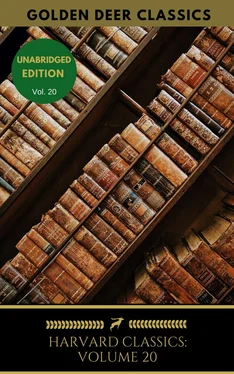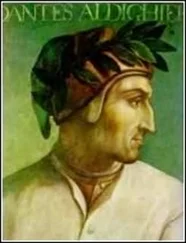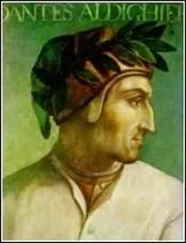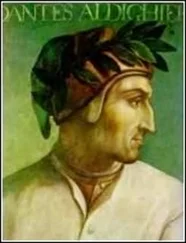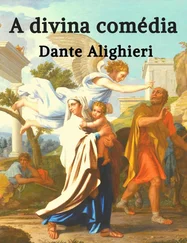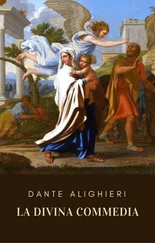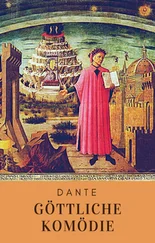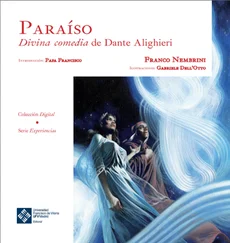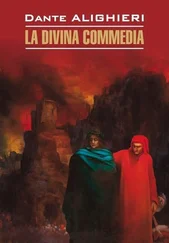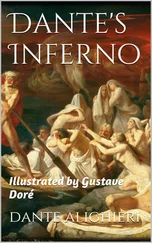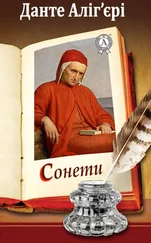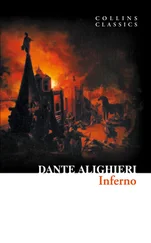Array Dante Alighieri - Harvard Classics Volume 20
Здесь есть возможность читать онлайн «Array Dante Alighieri - Harvard Classics Volume 20» — ознакомительный отрывок электронной книги совершенно бесплатно, а после прочтения отрывка купить полную версию. В некоторых случаях можно слушать аудио, скачать через торрент в формате fb2 и присутствует краткое содержание. Жанр: unrecognised, на английском языке. Описание произведения, (предисловие) а так же отзывы посетителей доступны на портале библиотеки ЛибКат.
- Название:Harvard Classics Volume 20
- Автор:
- Жанр:
- Год:неизвестен
- ISBN:нет данных
- Рейтинг книги:5 / 5. Голосов: 1
-
Избранное:Добавить в избранное
- Отзывы:
-
Ваша оценка:
- 100
- 1
- 2
- 3
- 4
- 5
Harvard Classics Volume 20: краткое содержание, описание и аннотация
Предлагаем к чтению аннотацию, описание, краткое содержание или предисловие (зависит от того, что написал сам автор книги «Harvard Classics Volume 20»). Если вы не нашли необходимую информацию о книге — напишите в комментариях, мы постараемся отыскать её.
1. The Divine Comedy, by Dante Alighieri
Also available:
The Complete Harvard Classics Collection (51 Volumes + The Harvard Classic Shelf Of Fiction)
50 Masterpieces You Have To Read Before You Die (Golden Deer Classics)
Harvard Classics Volume 20 — читать онлайн ознакомительный отрывок
Ниже представлен текст книги, разбитый по страницам. Система сохранения места последней прочитанной страницы, позволяет с удобством читать онлайн бесплатно книгу «Harvard Classics Volume 20», без необходимости каждый раз заново искать на чём Вы остановились. Поставьте закладку, и сможете в любой момент перейти на страницу, на которой закончили чтение.
Интервал:
Закладка:
And wear the body I have ever worn.
But who are ye, from whom such mighty grief,
As now I witness, courseth down your cheeks?
What torment breaks forth in this bitter woe?”
“Our bonnets gleaming bright with orange hue,”
One of them answer’d, “are so leaden gross,
That with their weight they make the balances
To crack beneath them. Joyous friars [156]we were,
Bologna’s natives; Catalano I,
He Loderingo named; and by thy land
Together taken, as men used to take
A single and indifferent arbiter,
To reconcile their strifes. How there we sped,
Gardingo’s vicinage [157]can best declare.”
“O friars!” I began, “your miseries—”
But there brake off, for one had caught mine eye,
Fix’d to a cross with three stakes on the ground:
He, when he saw me, writhed himself, throughout
Distorted, ruffling with deep sighs his beard.
And Catalano, who thereof was ’ware,
Thus spake: “That pierced spirit, [158]whom intent
Thou view’st, was he who gave the Pharisees
Counsel, that it were fitting for one man
To suffer for the people. He doth lie
Transverse; nor any passes, but him first
Behoves make feeling trial how each weighs.
In straits like this along the foss are placed
The father of his consort, [159]and the rest
Partakers in that council, seed of ill
And sorrow to the Jews.” I noted then,
How Virgil gazed with wonder upon him,
Thus abjectly extended on the cross
In banishment eternal. To the friar
He next his words address’d: “We pray ye tell,
If so be lawful, whether on our right
Lies any opening in the rock, whereby
We both may issue hence, without constraint
On the dark angels, that compell’d they come
To lead us from this depth.” He thus replied:
“Nearer than thou dost hope, there is a rock
From the great circle moving, which o’ersteps
Each vale of horror, save that here his cope
Is shatter’d. By the ruin ye may mount:
For on the side it slants, and most the height
Rises below.” With head bent down awhile
My leader stood; then spake: “He warn’d us ill,
Who yonder hangs the sinners on his hook.”
To whom the friar: “At Bologna erst
I many vices of the Devil heard;
Among the rest was said, ‘He is a liar,
And the father of lies!’” When he had spoke,
My leader with large strides proceeded on,
Somewhat disturb’d with anger in his look.
I therefore left the spirits heavy laden,
And, following, his beloved footsteps mark’d.
Canto XXIV
Argument.—Under the escort of his faithful master, Dante not without difficulty makes his way out of the sixth gulf; and in the seventh, sees the robbers tormented by venomous and pestilent serpents. The soul of Vanni Fucci, who had pillaged the sacristy of St. James in Pistoia, predicts some calamities that impended over that city, and over the Florentines.
In the year’s early nonage, [160]when the sun
Tempers his tresses in Aquarius’ urn,
And now toward equal day the nights recede;
Whenas the rime upon the earth puts on
Her dazzling sister’s image, but not long
Her milder sway endures; then riseth up
The village hind, whom fails his wintry store,
And looking out beholds the plain around
All whiten’d; whence impatiently he smites
His thighs, and to his hut returning in,
There paces to and fro, wailing his lot,
As a discomfited and helpless man;
Then comes he forth again, and feels new hope
Spring in his bosom, finding e’en thus soon
The world hath changed its countenance, grasps his crook,
And forth to pasture drives his little flock:
So me my guide dishearten’d, when I saw
His troubled forehead; and so speedily
That ill was cured; for at the fallen bridge
Arriving, toward me with a look as sweet,
He turn’d him back, as that I first beheld
At the steep mountain’s foot. Regarding well
The ruin, and some counsel first maintain’d
With his own thought, he opened wide his arm
And took me up. As one, who, while he works,
Computes his labor’s issue, that he seems
Still to foresee the effect; so lifting me
Up to the summit of one peak, he fix’d
His eye upon another. “Grapple that,”
Said he, “but first make proof, if it be such
As will sustain thee.” For one capt with lead
This were no journey. Scarcely he, though light,
And I, though onward push’d from crag to crag,
Could mount. And if the precinct of this coast
Were not less ample than the last, for him
I know not, but my strength had surely fail’d.
But Malebolge all toward the mouth
Inclining of the nethermost abyss,
The site of every valley hence requires,
That one side upward slope, the other fall.
At length the point from whence the utmost stone
Juts down, we reach’d; soon as to that arrived,
So was the breath exhausted from my lungs
I could no further, but did seat me there.
“Now needs thy best of man;” so spake my guide:
“For not on downy plumes, nor under shade
Of canopy reposing, fame is won;
Without which whosoe’r consumes his days,
Leaveth such vestige of himself on earth,
As smoke in air or foam upon the wave.
Thou therefore rise: vanquish thy weariness
By the mind’s effort, in each struggle form’d
To vanquish, if she suffer not the weight
Of her corporeal frame to crush her down.
A longer ladder yet remains to scale.
From these to have escaped sufficeth not,
If well thou note me, profit by my words.”
I straightway rose, and show’d myself less spent
That I in truth did feel me. “On,” I cried,
“For I am stout and fearless.” Up the rock
Our way we held, more rugged than before,
Narrower, and steeper far to climb. From talk
I ceased not, as we journey’d, so to seem
Least faint; whereat a voice from the other foss
Did issue forth, for utterance suited ill.
Though on the arch that crosses there I stood,
What were the words I knew not, but who spake
Seem’d moved in anger. Down I stoop’d to look;
But my quick eye might reach not to the depth
For shrouding darkness; wherefore thus I spake:
“To the next circle, teacher, bend thy steps,
And from the wall dismount we; for as hence
I hear and understand not, so I see
Beneath, and naught discern.” “I answer not,”
Said he, “but by the deed. To fair request
Silent performance maketh best return.”
We from the bridge’s head descended, where
To the eighth mound it joins; and then, the chasm
Opening to view, I saw a crowd within
Of serpents terrible, so strange of shape
And hideous, that remembrance in my veins
Yet shrinks the vital current. Of her sands
Let Libya vaunt no more: if Jaculus,
Pareas and Chelyder be her brood,
Cenchris and Amphisbæna, plagues so dire
Or in such numbers swarming ne’er she show’d,
Not with all Ethiopia, and whate’er
Above the Erythræan sea is spawn’d.
Amid this dread exuberance of woe
Ran naked spirits wing’d with horrid fear,
Nor hope had they of crevice where to hide,
Or heliotrope to charm them out of view.
With serpents were their hands behind them bound,
Which through their reins infix’d the tail and head,
Twisted in folds before. And lo! on one
Near to our side, darted an adder up,
And, where the neck is on the shoulders tied,
Transpierced him. Far more quickly than e’er pen
Читать дальшеИнтервал:
Закладка:
Похожие книги на «Harvard Classics Volume 20»
Представляем Вашему вниманию похожие книги на «Harvard Classics Volume 20» списком для выбора. Мы отобрали схожую по названию и смыслу литературу в надежде предоставить читателям больше вариантов отыскать новые, интересные, ещё непрочитанные произведения.
Обсуждение, отзывы о книге «Harvard Classics Volume 20» и просто собственные мнения читателей. Оставьте ваши комментарии, напишите, что Вы думаете о произведении, его смысле или главных героях. Укажите что конкретно понравилось, а что нет, и почему Вы так считаете.
